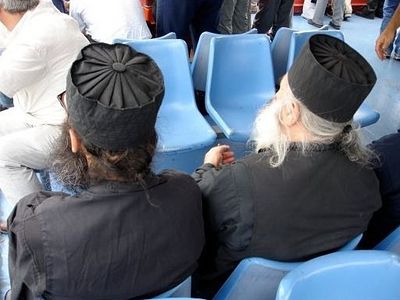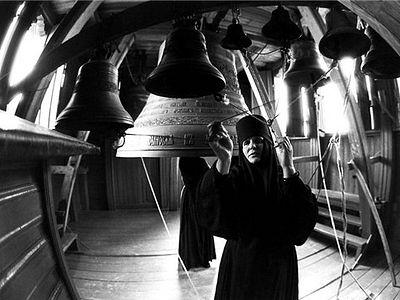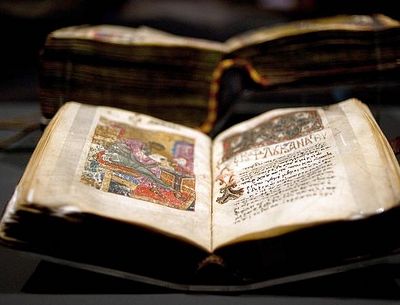
This short epilogue to the Lord’s prayer is reminiscent of King David’s words as he offered treasures unto God, saying “Thine, O Lord, is the greatness, and the power, and the glory, and the victory, and the majesty: for all that is in the heaven and in the earth is thine; Thine is the kingdom, O Lord, and thou art exalted as head above all (1 Chronicles 29:11). The treasure we have just offered, however, consists not of earthly jewels, but of the fundamental virtues that grace the Christian who has prayed this prayer: an inclination to obedience, forgiveness, and humility. “Thine is the kingdom, and the power, and the glory” teaches us to conclude every prayer with thanksgiving and praise to God. It is not only a doxology. It is also a confession of faith that though we be weak vessels of clay, nevertheless, we are also under a powerful and glorious King (Saint John Chrysostom, Homily 19 on Matthew). Saint Augustine notes that when “in heaven the angels praise God, they see the very form of truth, without any darkness of vision, without any admixture of unreality: they see, love, praise, and do not become not weary” (On Psalm 57). “Thine is the Kingdom, and the Power, and the Glory” is thus a confession of the very truth of reality that brightens our vision with angelic clarity and illumines our hearts with the light of heaven.
And so we exclaim, “Thine is the Kingdom and the Power and the Glory.” And what we confess with our lips, we are also to manifest with our way of life (Saint John Chrysostom, On Psalm 212, PG 55.299): living as befits citizens of God’s kingdom, trusting in His measureless power and being in awe of His radiant glory. When said humbly from the heart, this praise of God can bring down God’s mercy like the dew of Hermon, protecting us even as the three children were not only protected from the flame in the midst of a fiery furnace, but were also accounted worthy of beholding the Son of man (Saint John Chrysostom, Homily on Holy Week, PG 55.522).
The Kingdom, the power, and the glory all bespeak God’s purifying, illumining, and deifying grace that can completely transform the children of Adam into children of light. They are His, indeed. But we also knows that He desires that they be ours. For from Christ’s own lips, we hear about the “kingdom prepared for you from the foundation of the world” (Matthew 25:34). From Him, we know that “it is your Father’s good pleasure to give you the kingdom” (Luke12:32). And so in Liturgy, after the people say the petitions of the “Lord’s prayer,” the priest responds by taking us where that prayer ultimately leads us: the Kingdom, Glory, and Power of the Triune God. And so in its Liturgical form, this prayer of all prayers closes, or rather opens up even further, with words from the highest heaven “For Thine is the Kingdom and the Power and the Glory of the Father and of the Son and of the Holy Spirit now and ever and unto the ages of ages.” Amen



